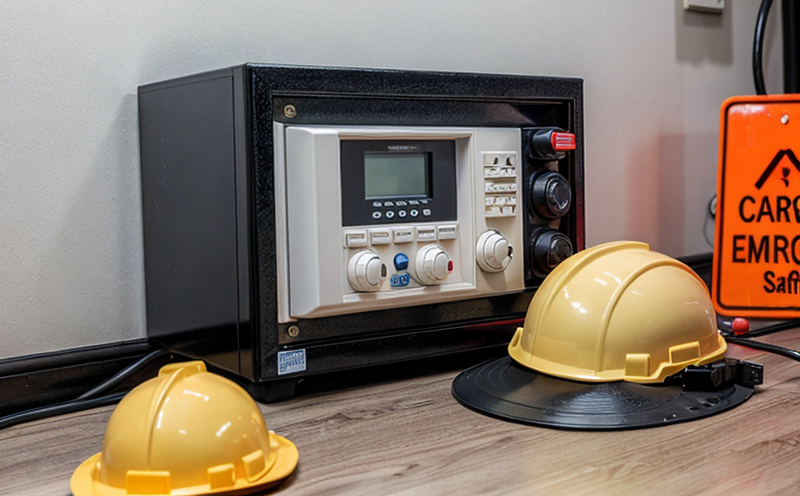FAA TSO C195 Traffic Collision Avoidance System Testing Validation Method Development Test
In the realm of aerospace and aviation testing, ensuring the safety and reliability of traffic collision avoidance systems (TCAS) is paramount. This is where the FAA TSO C195 comes into play, providing a stringent validation method for TCAS systems to ensure they meet the highest standards of safety and compliance.
FAA TSO C195 specifies the design, development, qualification, production, and maintenance processes required for TCAS equipment. The testing outlined in this standard is critical as it ensures that traffic collision avoidance systems are capable of detecting potential collisions between aircraft and providing timely alerts to pilots. This service not only validates that the system meets regulatory requirements but also helps manufacturers demonstrate compliance with rigorous safety standards.
The FAA TSO C195 process involves a series of tests aimed at assessing various aspects of TCAS performance, including:
- System identification and recognition
- Transponder communication
- Collision avoidance alerts
- System reliability under simulated flight conditions
The testing process is designed to simulate real-world scenarios that pilots might encounter, ensuring the TCAS system can function effectively and accurately. This includes conducting tests in various environmental conditions such as altitude, temperature, humidity, and air density variations.
In addition to these core tests, the FAA TSO C195 also emphasizes the importance of continuous system monitoring and maintenance. Regular testing is crucial for identifying any potential issues that could affect system performance. The service provided ensures that all components are rigorously tested under controlled conditions to replicate real-world flight scenarios.
The process begins with thorough preparation, including detailed documentation of test procedures, equipment calibration, and personnel training. Once the system has been prepared, it undergoes a series of tests that simulate various phases of flight, from takeoff through landing. Each phase is designed to evaluate specific aspects of the TCAS system's performance.
The testing methodology includes both laboratory simulations and field trials. Laboratory simulations allow for controlled environments where variables can be precisely manipulated to test the system under extreme conditions. Field trials provide a more realistic assessment by testing the system in actual operational scenarios.
Upon completion of the tests, detailed reports are generated that document all aspects of the testing process, including any issues encountered and their resolution. These reports serve as critical documentation for compliance with FAA TSO C195 standards. They also provide valuable insights into potential improvements or modifications needed to enhance system performance.
The validation method developed through this service ensures not only regulatory compliance but also enhances confidence in the safety of TCAS systems. This is especially important given the complex and critical nature of aviation operations, where any failure can have severe consequences.
In summary, FAA TSO C195 Traffic Collision Avoidance System Testing Validation Method Development Test is a comprehensive service that plays a vital role in ensuring the safety and reliability of TCAS systems. By adhering to this stringent standard, manufacturers can demonstrate their commitment to safety and compliance while providing pilots with trusted tools for collision avoidance.
Applied Standards
| Standard Name | Description |
|---|---|
| FAA TSO C195 | This standard outlines the design, development, qualification, production, and maintenance processes required for TCAS equipment. It ensures that traffic collision avoidance systems meet stringent safety standards. |
| ISO/IEC 27001 | An international standard for information security management systems (ISMS) that provides a framework to protect sensitive data and business information. |
| EN 9100 | This is the European aerospace quality standard which ensures high quality in all aspects of aircraft production, maintenance, modification, overhaul, and repair. |
| ASTM E2583-17 | An American society for testing and materials standard that provides guidelines for the qualification and evaluation of TCAS systems. |
Why Choose This Test
- Comprehensive coverage of all aspects of TCAS system performance
- Validation against stringent FAA TSO C195 standards
- Real-world simulation of flight conditions and environmental factors
- Detailed documentation and reporting for compliance verification
- Continuous monitoring and maintenance recommendations to ensure long-term reliability
- Enhanced confidence in system performance and safety
- Supports regulatory compliance and meets international standards
- Provides valuable insights into potential improvements or modifications needed for enhanced performance
International Acceptance and Recognition
The FAA TSO C195 Traffic Collision Avoidance System Testing Validation Method Development Test is widely recognized and accepted internationally. This standard ensures that traffic collision avoidance systems meet the highest global safety standards, thereby facilitating international trade and collaboration in the aerospace industry.
Adherence to this standard is particularly important for manufacturers looking to sell their products globally. By meeting FAA TSO C195 requirements, companies can ensure their TCAS systems are recognized and accepted by regulatory bodies worldwide. This not only simplifies the certification process but also enhances marketability in various countries.
The acceptance of FAA TSO C195 is further bolstered by its alignment with other international standards such as ISO/IEC 27001, EN 9100, and ASTM E2583-17. These standards provide a comprehensive framework for information security management, quality assurance in aerospace production, and the qualification of TCAS systems, respectively.
By incorporating these internationally recognized standards into their testing processes, manufacturers can ensure that their TCAS systems are not only compliant with FAA TSO C195 but also meet global best practices. This approach strengthens trust and confidence among customers and regulatory bodies, ultimately leading to greater market success.





